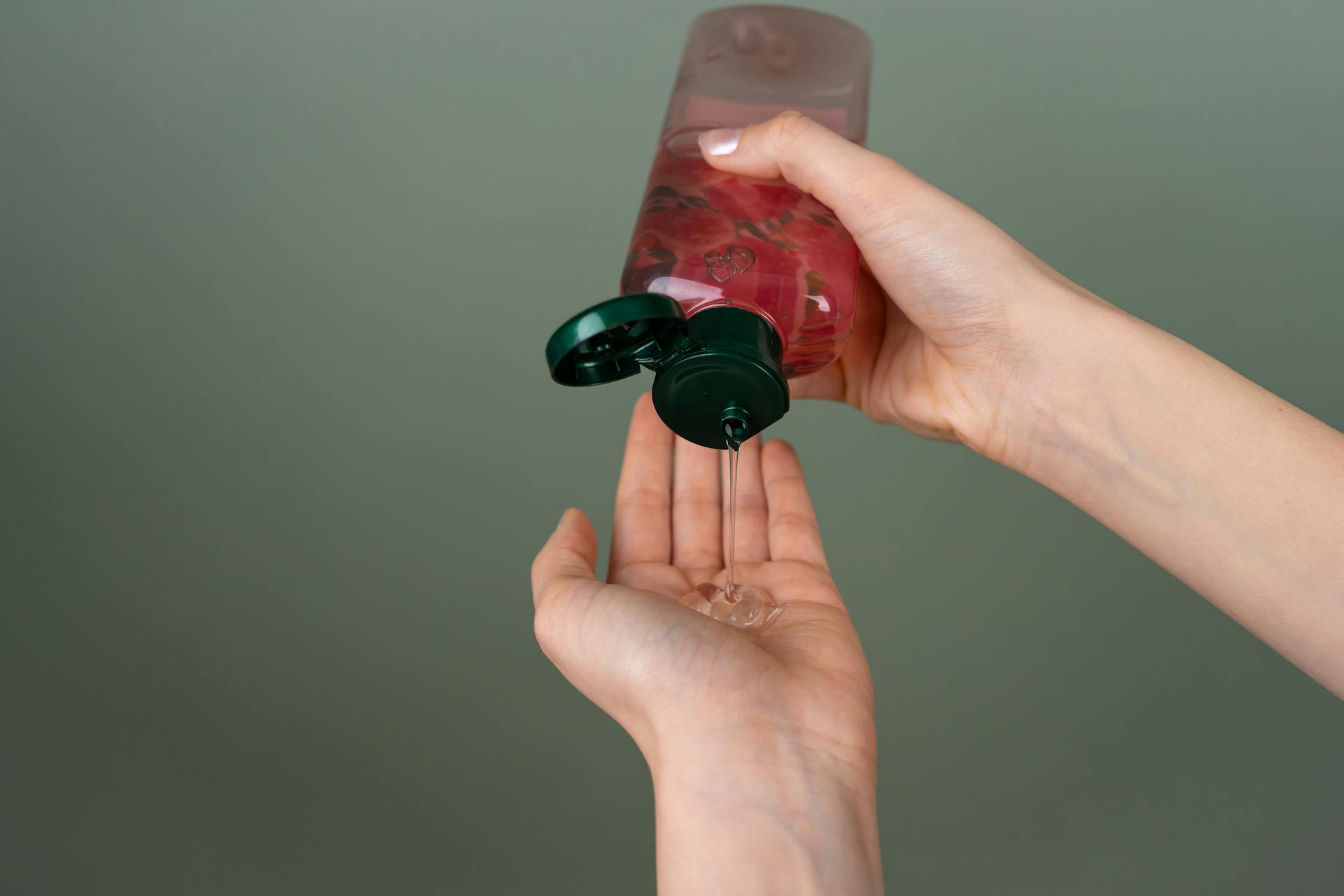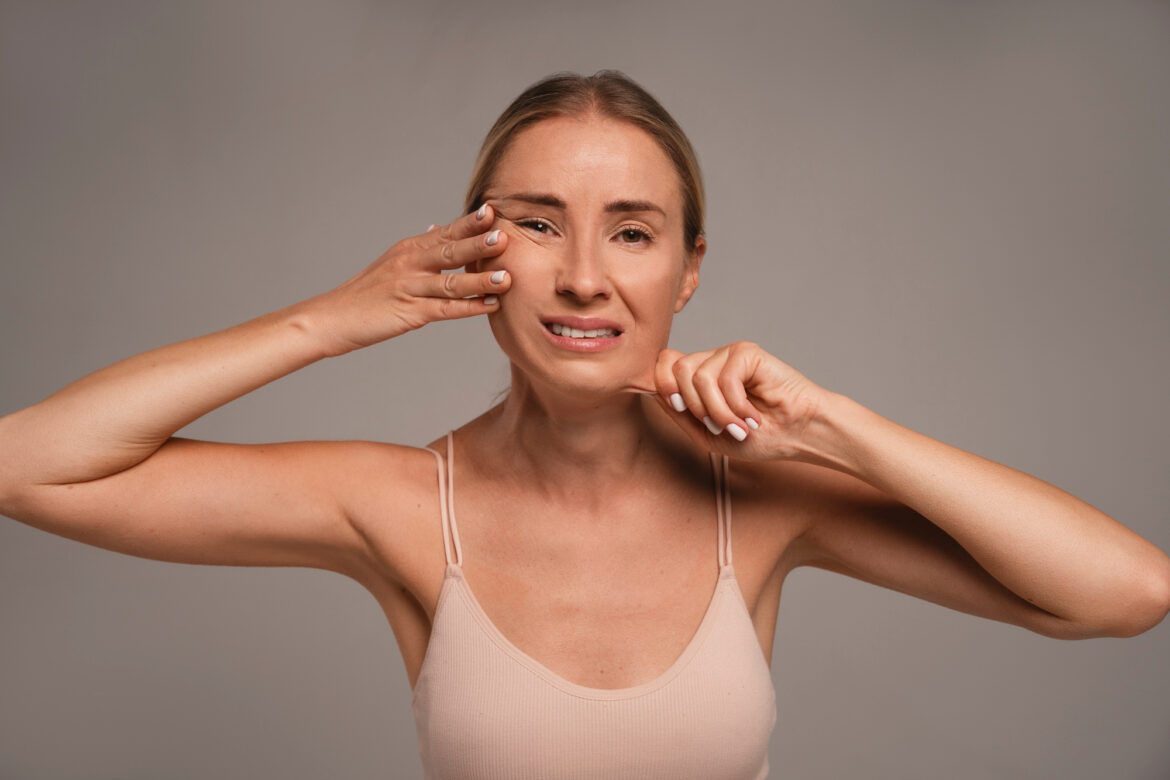As we age, one common concern is the loss of skin elasticity. This can lead to sagging, fine lines, and wrinkles, which might make your skin look older and less firm. Fortunately, there are various ways to improve skin elasticity and maintain a more youthful appearance. This article will explore the causes of reduced skin elasticity, and find the effective ways to improve lack of elasticity in skin offer skincare and lifestyle tips, and suggest effective treatments to help keep your skin looking firm and radiant.
Table of Contents
ToggleWhat is Skin Elasticity?
Skin elasticity refers to your skin’s ability to stretch and snap back to its original shape. This quality is due to collagen and elastin, two proteins in the skin’s dermal layer that maintain structure and flexibility. As we age, the production of these proteins slows down, leading to less elastic skin. Learn more about skin elasticity here.
Also Read: Pre-Workout Skincare Routine: A Guide to Glowing Skin
Why Do We Lose Skin Elasticity?
The loss of skin elasticity, or elastosis, can be attributed to several factors:
- Aging: Natural aging processes slow down collagen and elastin production, leading to less firm skin.
- Sun Exposure: UV rays break down collagen fibers, accelerating aging and causing sagging.
- Lifestyle Choices: Smoking, a poor diet, and lack of physical activity contribute to reduced skin elasticity.
- Hormonal Changes: Fluctuations, especially during menopause, impact collagen production.
- Genetics: Some people may be genetically predisposed to lose elasticity earlier than others.
For more details on why our skin changes as we age, check out WebMD’s guide on skin aging.
Signs of Reduced Skin Elasticity
How do you know if your skin is losing its elasticity? Here are some common signs:
- Sagging Skin: Particularly around areas like the jawline, cheeks, and under the eyes.
- Wrinkles: Fine lines that don’t smooth out easily, even with moisturizer.
- Crepey Texture: Thin, papery skin, often visible on the neck and arms.
- Slower Snapback: If you gently pinch your skin and it doesn’t quickly return to place, it may have lost elasticity.
These signs are a natural part of aging, but there are steps you can take to improve skin firmness.
Top Tips for Improving Skin Elasticity
1. Protect Your Skin from the Sun
Sun damage is a primary cause of premature aging and loss of elasticity. Wearing sunscreen daily with at least SPF 30 protects your skin from harmful UV rays. Opt for a broad-spectrum sunscreen to cover both UVA and UVB rays. Learn more about the importance of sunscreen.

2. Incorporate Retinoids into Your Skincare Routine
Retinoids, including retinol, are known for their ability to boost collagen production. Start with a low concentration to minimize irritation and gradually increase it as your skin adapts. Retinoids can improve skin texture, firmness, and reduce wrinkles over time. Here’s a guide on using retinoids.

3. Stay Hydrated
Hydration is essential for maintaining skin elasticity. Drinking plenty of water and using a moisturizer with hydrating ingredients, such as hyaluronic acid, helps keep the skin plump and resilient. Discover the benefits of hydration.
Also Read: Best Skincare Routine for Dehydrated Skin
4. Eat a Collagen-Boosting Diet
Your diet can play a significant role in skin health. Foods rich in vitamins C and E, antioxidants, and amino acids support collagen production. Oranges, berries, spinach, and fish are great options. Collagen supplements are also an option if you’re looking for additional support. Read about collagen-rich foods.

5. Use Skincare Products with Peptides and Antioxidants
Peptides help rebuild collagen, while antioxidants protect skin cells from environmental damage. Look for products with peptides, niacinamide, or vitamin C to boost skin elasticity and brightness. Explore the benefits of peptides for skin.
6. Exercise Regularly
Exercise increases blood flow, bringing essential nutrients to the skin. Facial exercises, or facial yoga, can also target areas prone to sagging, improving tone and firmness. Check out exercises that benefit your skin.
Effective Skincare Products for Skin Elasticity
1. Retinol Creams
Retinol helps promote cell turnover and collagen production, leading to firmer skin. For a trusted product, consider RoC Retinol Correxion Night Cream.
Also Read: When and How to Use Retinol: Best Age, Time, Skin Care Order
2. Hyaluronic Acid Serums
Hyaluronic acid provides hydration that plumps the skin, making it appear firmer. Try The Ordinary Hyaluronic Acid 2% + B5 for an affordable, effective option.
3. Collagen-Boosting Moisturizers
Moisturizers with peptides and antioxidants help reinforce the skin barrier and support elasticity. Olay Regenerist Micro-Sculpting Cream is a popular choice.
4. Vitamin C Serums
Vitamin C brightens skin and boosts collagen production, enhancing elasticity. A recommended product is SkinCeuticals C E Ferulic.
5. Antioxidant-Infused Sunscreens
Antioxidants in sunscreens provide extra protection from environmental stressors. Consider La Roche-Posay Anthelios Melt-in Milk Sunscreen.
For more product options, browse Sephora’s anti-aging skincare collection.
Lifestyle Changes for Improved Skin Elasticity
1. Prioritize Sleep
Sleep is when your skin repairs itself, so aim for 7-8 hours each night. During deep sleep, your body boosts collagen production, which helps maintain elasticity. Learn more about sleep’s benefits for skin.
2. Quit Smoking
Smoking reduces blood flow and breaks down collagen, contributing to sagging skin. Quitting can significantly improve skin health over time. Tips for quitting smoking.
3. Reduce Sugar Intake
Excess sugar can damage collagen and elastin fibers, leading to wrinkles. Limiting sugary foods and choosing a balanced diet can help keep your skin firm. Effects of sugar on skin.
4. Manage Stress Levels
High stress can lead to increased cortisol production, which negatively impacts collagen. Consider stress-reduction techniques like meditation, yoga, or deep breathing. How to relieve stress.
Professional Treatments to Boost Skin Elasticity
1. Micro-Needling
Micro-needling stimulates collagen production by creating tiny punctures in the skin. It’s minimally invasive and suitable for various skin types. Read more about micro-needling.
2. Laser Therapy
Laser treatments, like Fraxel, target the deeper layers of the skin to promote collagen production and improve elasticity. Multiple sessions may be necessary for optimal results. Overview of laser treatments.
3. Chemical Peels
Chemical peels remove the top layer of skin, promoting new cell growth and collagen synthesis. This can result in firmer, more elastic skin. Chemical peel details.
4. Radiofrequency Treatments
Radiofrequency uses heat to stimulate collagen production, leading to tighter skin. It’s a non-invasive option that can be done on various body areas. Learn about radiofrequency for skin.
Conclusion
Skin elasticity naturally declines with age, but that doesn’t mean you can’t do anything about it. With a combination of proper skincare, healthy lifestyle habits, and professional treatments, you can improve skin elasticity and keep your skin looking firm and youthful. Start by making small changes today, and enjoy the benefits of healthier, more resilient skin over time.
FAQ: What to Do with Lack of Elasticity in Your Skin?
1. What causes the loss of skin elasticity?
Skin elasticity declines due to a decrease in collagen and elastin, two proteins that keep skin firm and resilient. Aging is the primary cause, as our bodies naturally produce less collagen over time. Other factors include sun exposure, smoking, poor diet, and genetics. UV rays can break down collagen fibers, while lifestyle factors like smoking and high sugar intake can accelerate collagen degradation.
2. How can I tell if my skin has lost elasticity?
Signs of reduced elasticity include sagging skin, especially around the jawline and cheeks, wrinkles that don’t smooth out easily, and a crepey texture that appears thin and papery. If you pinch your skin and it doesn’t snap back quickly, it might be a sign that elasticity has diminished. These signs often start appearing in your 30s and become more pronounced with age.
3. Can skin elasticity be improved, or is it irreversible?
While you can’t completely restore skin to its youthful state, you can significantly improve elasticity with the right skincare products, lifestyle changes, and treatments. Using products with ingredients like retinoids, peptides, and antioxidants can boost collagen production. Professional treatments, such as micro-needling and laser therapy, can also enhance elasticity by promoting collagen synthesis.
4. What skincare ingredients are best for improving elasticity?
Retinoids, like retinol, stimulate collagen production and improve skin texture. Peptides are beneficial as they help rebuild collagen, and antioxidants like vitamin C protect against free radicals that degrade collagen and elastin. Hyaluronic acid is another excellent ingredient that hydrates the skin, making it appear plumper and more elastic. Read more about peptides and their benefits.
5. How does diet impact skin elasticity?
A diet rich in vitamins C and E, omega-3 fatty acids, and antioxidants supports collagen production and overall skin health. Foods like berries, oranges, leafy greens, and fatty fish help maintain elasticity. Collagen supplements can also aid in boosting collagen levels. However, it’s important to avoid excessive sugar, which can damage collagen and elastin fibers. Learn about collagen-boosting foods.
6. Are collagen supplements effective for skin elasticity?
Research suggests that collagen supplements can improve skin elasticity and hydration, particularly when taken regularly. Look for hydrolyzed collagen, which is easier for the body to absorb. While results vary, many people notice improved skin texture and firmness after a few months of consistent use. Consult with a healthcare provider before starting any new supplement regimen.
7. How does sun exposure affect skin elasticity, and what can I do about it?
UV rays break down collagen and elastin in the skin, leading to premature aging and reduced elasticity. To prevent further damage, wear a broad-spectrum sunscreen with at least SPF 30 daily, even on cloudy days. Additionally, using antioxidants like vitamin C can boost protection against UV-related damage. Find out more about sunscreen and its importance.
8. Is exercise beneficial for improving skin elasticity?
Yes, regular exercise promotes blood circulation, delivering oxygen and nutrients to the skin, which can improve elasticity. Facial exercises, or “face yoga,” can also help target areas like the jawline and cheeks, making the skin appear firmer. Exercises that boost overall circulation, such as cardio, can benefit the skin by nourishing cells and supporting collagen production. Check out facial exercises for firmer skin.
9. What professional treatments are most effective for boosting skin elasticity?
Micro-needling, laser therapy, chemical peels, and radiofrequency treatments are popular options. These procedures stimulate collagen production by targeting deeper layers of the skin, promoting firmer, more elastic skin. Each treatment varies in cost, downtime, and effectiveness, so it’s best to consult a dermatologist to determine which option suits your needs. Explore micro-needling benefits.
10. How long does it take to see results when trying to improve skin elasticity?
The timeframe for visible results depends on the methods used. With topical skincare, such as retinol or peptides, improvements can typically be seen within 4-8 weeks with consistent use. Professional treatments like micro-needling or laser therapy may show quicker results, but multiple sessions are often necessary for optimal effects. Consistency is key, so combine skincare, lifestyle changes, and treatments for the best results.
